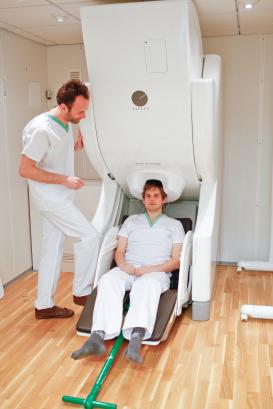The BRUMEG study was an effort to investigate the neurophysiological mechanisms of cognitive impairment in MS using Magnetoencephalography (MEG). MEG is a technique which offers higher spatial resolution than electroencephalography (EEG) and higher temporal resolution than functional magnetic resonance imaging (fMRI). The goal of this study was to collect an extensive and high-quality data-set comprising of MEG (task and resting-state) data, MRI (3D-T1, FLAIR, DTI, resting-state fMRI) data and a wide array of neuropsychological measures (i.a. Stroop task, SDMT, BVMT-R and Beck’s Depression Inventory) to 105 persons with MS (PwMS) and 45 healthy controls.
We planned to analyse task and resting-state MEG data by projecting the data to source space and look for differences between PwMS and healthy controls. We are currently performing both relatively traditional analyses (event-related potential analysis, time-frequency analysis, connectivity analysis) and more novel and innovative approaches (Hidden Markov Models, Kuramoto models). Our multi-modal data also allowed us to investigate possible relationships between cognitive impairment in MS and structural brain (MRI, DTI) and resting-state fMRI findings which allow us to paint a more complete picture of how the MS-affected brain functions.
The study was carried out in collaboration with the MEG unit of the Hôpital Erasme, the Laboratoire de Cartographie Fonctionnelle du Cerveau (LCFC) of the Université libre de Bruxelles (ULB), the National MS Centrer Melsbroek and the UZ Brussel.
